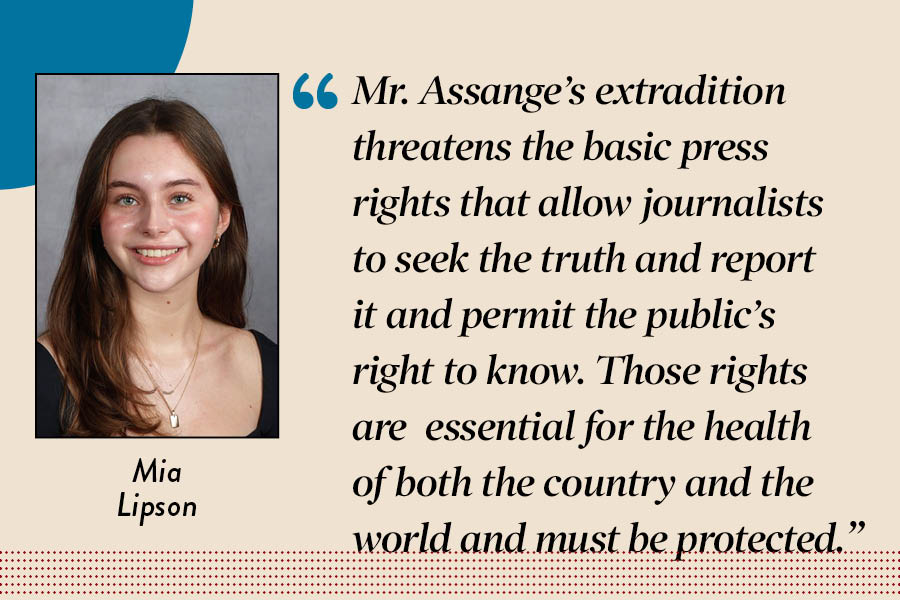Imagine a media organization purely dedicated to whistleblowing. Imagine being able to look through hundreds of government documents yourself, even ones you’re not supposed to see. Imagine being able to read a secret compendium about global wars and U.S. military.
Australian journalist Julian Assange had this same vision. In 2006, Mr. Assange founded the platform WikiLeaks, a nonprofit media organization dedicated to publishing files, often focusing on war and corruption. Since then, WikiLeaks claims to have published over 10 million documents, the most notable ones pertaining to United States military behavior in Iraq and Afghanistan.
In 2019, Mr. Assange was charged with 17 offenses under the U.S. Espionage Act of 1917 relating to a computer hacking conspiracy, where he was accused of conspiring to break into military databases. In response, Mr. Assange argued the files and his journalism revealed abuses by U.S. military forces, and said the case against him was “politically motivated,” a comment which U.S. government lawyers denied.
Mr. Assange has been in a United Kingdom prison for the past five years and is wanted by the U.S. government for disclosing secret military files. He has been fighting to avoid U.S. extradition for years.
Mr. Assange’s case threatens the basic press rights that allow journalists to seek the truth and report it and permit the public’s right to know, and he should therefore not be extradited. Those journalistic rights are essential for the health of both the country and the world and must be protected. Regardless of opinions on Mr. Assange’s methods and personal behaviors, his case represents a more important central question of press freedoms, which his extradition endangers.
Critiques of Mr. Assange’s behavior point out that WikiLeaks did not independently factually verify any of the documents. Though WikiLeaks was unique in that aspect from other journalistic organizations, WikiLeaks used the files to collaborate with other media outlets, namely the New York Times in 2010.
As the International Federation of Journalists argues, Mr. Assange’s case sets a threatening precedent that members of the media can be targeted by publishing information for the public interest. Much of the information revealed to the public was just that. Some of the files and videos showed countless civilian deaths and drew national and global attention to the U.S. military occupation of Iraq. His work alerted the public of wartime behaviors, and, as Mr. Assange has insisted, exposed serious abuses by U.S. military forces.
His extradition sets a dangerous standard across the world. By attempting to extradite Mr. Assange, The United States is asserting a right to track down journalists across the world and punish them for reporting the truth. Though Mr. Assange himself is far from a perfect free-press hero, his case, which is far from simple, presents key points about press freedom at its heart, which cannot be ignored.






















































Brian • Mar 28, 2024 at 10:48 pm
Free Assange! This is such a valid opinion piece Mia. This is an issue that deeply resounded with my cause of being a journalist. Thank you for this amazing story!
Yuli Arseniy • Mar 22, 2024 at 11:37 am
Free Assange! A once in a lifetime noteworthy opinion piece from the Midway.